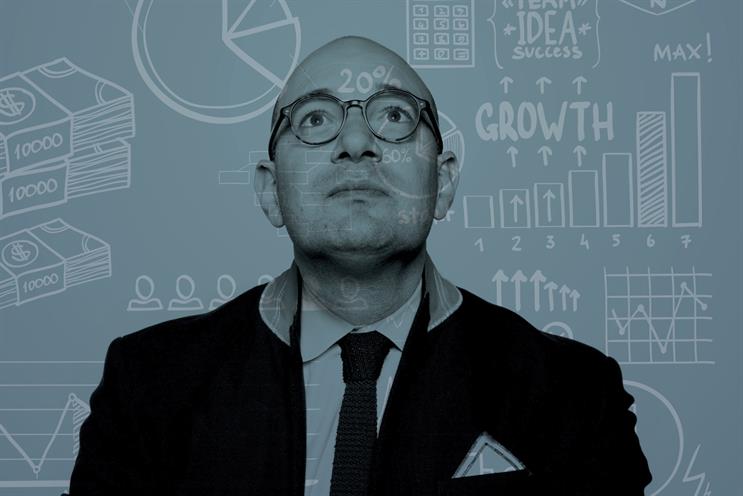When agencies come knocking with a great creative idea, it’ll be me, as the marketing director, who opens the door. I’ll take a look at what they’re proposing and say "yes" or "no".
When elite management consultancies come knocking on the company door, it’s not the marketing director who opens it. It’s another board member who will offer them their ear, such as the financial director or managing director. They will be told a story in a language they understand, because they are numbers people.
The big management consultancies, such as Accenture and McKinsey, are making major inroads into the marketing and digital industries. These organisations are looking for new ways to grow, and one point they will have observed is that marketing still struggles to quantify objectively the worth of a campaign or media investment. But the McKinseys and Accentures of this world are mathematically skilled and can use their knowhow to prove it.
And suddenly the power will have shifted from the world of marketing to those crunching the figures. They will have circumvented the marketing department.
Times are changing. Fast. Science has met marketing. Econometric modelling provides objective and independent proof as to whether campaigns do or do not work.
Use econometrics yourself, and you will have nothing to fear. You know your business better, and marketers and their creative and media agencies have been producing excellent work for years.
The digital age, and the concomitant rise of big data, is forcing the world of marketing to mature and prove its worth. If you fail to acknowledge this, you are at severe risk of being left behind. Marketing needs to be as numerically literate as the worlds of finance, accounting and sales.
Econometrics is a process worth its weight in gold. Consider perhaps the most famous (and infamous) quote in the history of marketing: "I know that half of my advertising dollars are wasted, I just don’t know which half."
When the management consultancies come knocking, it’s not the marketing director who opens the door – it’s the MD or FD that has their ear
Legendary US magnate John Wanamaker’s quip is a century old, and perhaps it’s time to recognise it no longer rings as true as it did. Because if my managing director tells me tomorrow that we need to sell another 10,000 Audi cars, I can run the numbers and let him know how much it will cost, how long it will take, what media to buy and the message to use. I can provide him with the details of the return on every single pound spent on marketing.
All this data is provided by an independent agency. There’s no point giving kids homework if you let them mark it themselves. My six-year-old son would get 100% every time, and while that might make him happy for a little while, what will he have learned?
So it is with marketing. If you ask the creative, social or media agency to assess the effectiveness of a brand’s campaign, chances are you’ll get a big comfortable tick.
You need to use a company that has no vested interest in the creative or media worlds. It must be a totally objective observer; no bonus to sway it here or there. That independence and objectivity gives its data legitimacy. And that company’s data gives power to me and my team; helping us make more informed – and mature – decisions.
The model considers a mind-boggling number of factors, both internal and external. What media channels did we use? What message? What creative? What happened politically on any given day? What was the news headline that day? What were the exchange rates? The weather and temperature?
These factors just scratch the surface. But as you research more variables, over a longer period of time, the model gets more robust and the error rate becomes very small. Wanamaker would surely be impressed.
For this to work, it requires a change of attitude and leap of faith by all concerned. You need the agencies that are working with the brands to be on board; we need verified data to make the econometric model as accurate and efficient as possible.
Agencies must also be prepared to hear things that might raise an eyebrow or two. Ultimately, this process benefits everybody. By sharing the data with every agency working on the campaign, we are all empowered to make the correct decisions. And I can go to the boardroom and ask for funds, backed by the science to help me make the case.
But please remember the danger of "anaylsis paralysis" – analysing your business to such an extent that you stifle your creativity and forget the next big idea. At some point, optimisation has diminishing returns. You still need a transformative idea in tandem. There’s no doubt that econometrics will get your foot in the door, but great ideas will bring down that door.
Benjamin Braun is the marketing director of Audi UK.


